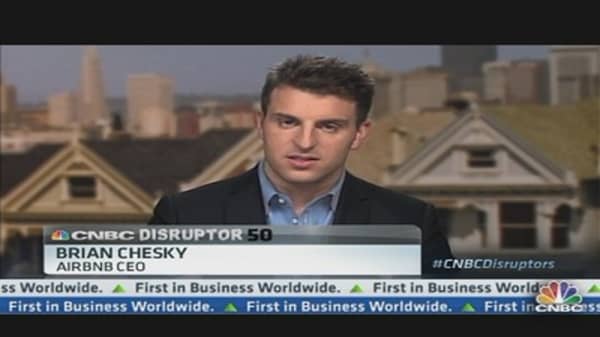The taxman is knocking at another Silicon Valley door. Just when thousands of urbanites thought they discovered a gold mine in renting out their apartments on Airbnb, regulators and tax collectors are flexing their power.
The online peer-to-peer home rental sites such as Airbnb have shot to popularity in recent years and are now facing policy battles in cities around the world where local laws limit short-term rentals.
"It's the wave of the future, and I think it's a good thing for the city ultimately, but it needs some regulation," said Paul Utrecht, a landlord-tenant attorney in San Francisco. "It should be legalized and it should be taxed."
At the urging of the hotel industry in some cases, politicians and courts are examining the ways in which Airbnb, Vacation Rentals By Owner, and other short-term rental sites run foul of local residency and zoning laws—and may be evading local taxes.
An Airbnb host in New York was fined $2,400 last week when an administrative law judge determined it had violated a city law that prohibits rentals for less than 30 days. Airbnb called the legal reasoning "tortured" and has vowed to aid with an appeal.
Barcelona and Berlin are debating new laws that limit short-term rentals, while other European cities, such as Paris, enforce onerous licensing requirements.
Officials in San Francisco are among the first in the world drafting new legislation that softens restrictions and adds a tax to such rentals. On top of income taxes, they want amateur hosts to pay the same 14 percent hotel tax that the Hiltons and Marriotts do.
"When visitors come to San Francisco, they incur significant costs for police, fire, health, street cleaning, and transit," said David Chiu, president of the city's board of supervisors. "Just as we ask our hotels to pay the hotel tax to pay for these city expenses, I think it's appropriate to ask Airbnb hosts to do the same."
Airbnb is in close discussions with the city on the legislation. Other stakeholders involved in the negotiations report the company seems to be acknowledging that it will have to agree to pay some tax, but believe it will push for a lower rate than the current 14 percent.
"For us, we're already paying taxes toward the city: property tax, sales tax anytime I buy something," said Quynh Yamada, a San Francisco nurse who rents her two-bedroom apartment on Airbnb during the summer. "I don't see why I have to pay extra."
Last year, Yamada made about $20,000 through Airbnb, money she put towards the cost of her mortgage and a surprise $30,000 bill to replace all the siding on her house.
More From the Financial Times:
Airbnb Plans ID Verification System
Airbnb Loses Legal Battle in New York
Investors Tire of 'Copycat' Start-Ups
San Francisco has not estimated the revenue such rentals could yield in hotel taxes, but it is enough that its investigators are tracking online sites to identify the most successful renters to target for collection.
In the meantime, politicians elsewhere are still grappling with basic regulation and, in some cases, increasing pressure from citizen groups and a hotel industry that feels threatened by the growth of online peer-to-peer rentals.
In New Orleans, Kristen Gisleson Palmer, a city council member who represents the heavily visited French Quarter, said she has "begged" her administration to "crack down" on short-term rentals in the city, particularly in areas that are strictly zoned for residential use.
Local law prohibits the rental of rooms for less than 30 days without a hotel or bed and breakfast licence, and less than 60 days in the French Quarter, but she said the city hasn't been enforcing the law and residents are complaining of noise and garbage generated by an over-run of tourists.
"These short-term rentals are really eroding the residential nature of our neighborhoods," she said. "It has to stop."
In European cities like Paris, Barcelona, Berlin and Hamburg, officials are worried that landlords will buy up buildings specifically to rent to tourists through these online sites, drying up the housing supply for residents and inflating rents, said Stephan Uhrenbacher, chief executive of 9flats, a rental site based in Germany. He said some cities present a "tough legal environment," often made worse by a vocal hotel lobby.
"They fear us," he said. "I would welcome any initiative where we are subject to the same taxes, because that would make us a real partner to the city and we would be taken seriously."




